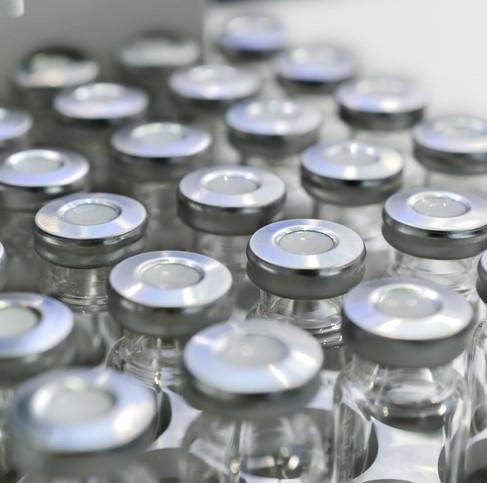A massive ambitious global effort to equitably distribute enough COVID-19 vaccine to end the pandemic's acute phase took another step forward today with 156 countries on board to receive doses, as the pandemic total crossed the 31 million case mark.
It took only 3 days for the world to add 1 million more cases, led by surge in India and steady rises in other parts of the world. The global total has climbed to 31,183,470 cases, and 962,176 people have died from their infections, according to the Johns Hopkins online dashboard.
Vaccine firms poised to sign COVAX agreements
At a World Health Organization (WHO) media briefing today, Director-General Tedros Adhanom Ghebreyesus, PhD, said global health officials are encouraged to see a large number of countries signing up for global vaccine efforts through the COVAX program. "For the world to recover faster, it has to recover together," he said.
He added, however, that the program still faces some daunting challenges. The COVAX program pools the risk of supporting vaccine development with securing doses for countries, both developed and developing, at reasonable prices. The goal is to have 2 billion doses by the end of 2021, assuming that each person will need two doses.
So far, $3 billion has been invested, which has been enough to launch the start-up phase, he said. And $15 billion of the remaining $35 billion is needed immediately to keep momentum going and stick to timelines. Of higher-income economies, 64 have joined the COVAX Facility, and 92 lower-income countries are eligible for financial support through the advance market commitment (AMC) part of the program, totaling 156 economies and representing 64% of the world's population.
At today's briefing, health officials said 38 more countries are expected to sign agreements in the coming days.
With the number of commitments signed, the COVAX Facility is now ready to sign formal agreements with vaccine companies that are part of the program's portfolio, which has nine vaccine candidates.
Seth Berkley, MD, chief executive officer of Gavi, the Vaccine Alliance, said the world learned important lessons during the 2009 H1N1 flu pandemic when a handful of wealthier nations bought up the whole supply of vaccines. He added that ensuring that all countries have access to COVID-19 vaccine isn't just the right thing to do, it's a far better route out of the pandemic. He said so far, countries, philanthropists, and private sector groups have donated $700 million to the AMC part of the program, but a total of $2 billion is needed.
So far, Russia, China, and the United States aren't participating, but Berkley said their bilateral agreement with vaccine makers still helps with getting more of the world immunized against the pandemic virus. He said that, with other countries still joining, global participation could eventually reach 80% to 90%.
Richard Hatchett, MD, CEO of the Coalition for Epidemic Preparedness Innovations (CEPI) said the number of countries that have joined COVAX is "hugely encouraging" and sets an important precedent for the world.
Outbreak developments
The pace of India's COVID-19 cases still shows no sign of a peak, and, as the world's second most populous country, in the weeks ahead it could pass the United States to have the most cases. The country reported 86,961 cases in the past day, and now has 5.5 million cases to 6.8 million in the United States.
Today the Taj Mahal, in the Agra district of India, reopened after a 6-month closure, Reuters reported. Several precautions are in place, including a cap of 5,000 daily visitors and a requirement that tickets must be bought in advance.
Several European countries report continued surges in cases in a second wave of activity. In Spain, Madrid officials have asked for the Army's help in disinfecting areas, policing, and setting up a field hospital, according to Reuters. A partial lockdown in that city has focused on lower-income areas, which prompted protests over the weekend.
In the United Kingdom, top government officials will hold an emergency meeting tomorrow to discuss the next steps to battle disease resurgence. Some health officials have warned the country could be weeks away for an exponentially rising death rate if new steps aren't taken to curb the spread of the virus.
In France, the city of Lyon tightened its COVID-19 restrictions after a sharp rise in both cases and intensive care unit (ICU) admissions, and in the Netherlands, daily cases passed 2,000 for the first time, marking the fifth record high in a week.
Elsewhere, Iran reported more than 3,000 new cases, its largest daily total since June.
In other developments:
- School resumed in the Seoul area after a month pause, now that cases have declined in South Korea's recent flare-up, and in New Zealand, the prime minister today eased all restrictions in its second wave, except for Auckland.
- The European Centre for Disease Prevention and Control (ECDC) today published a risk assessment on COVID-19 reinfections, which details six confirmed cases in five countries, covers how to identify them, and proposes public health response options.
- The WHO and African health group partners recently endorsed a protocol for conducting phase 3 trials on herbal medicines for COVID-19, along with a plan for establishing data and safety monitoring boards for the studies.






















